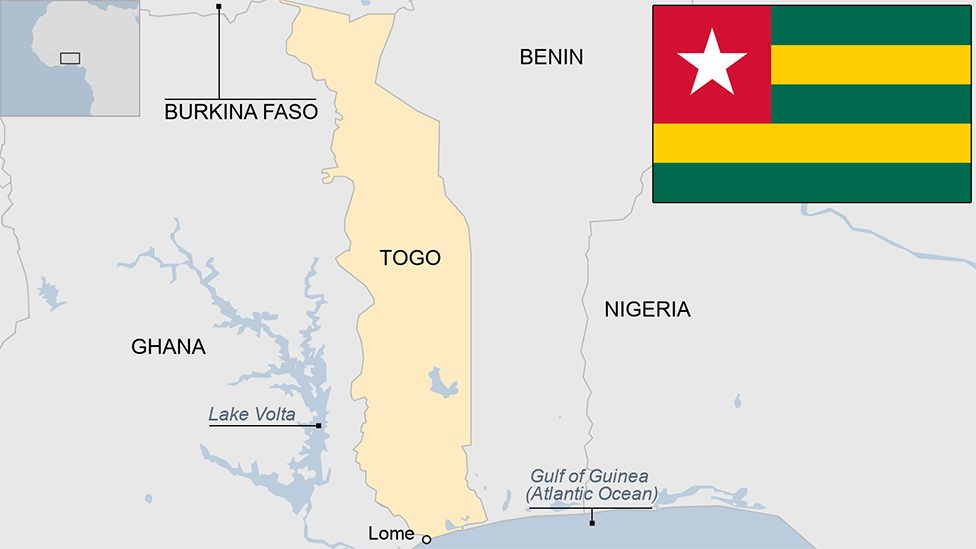Togo protests: Why are people marching against Faure Gnassingbé?
- Published
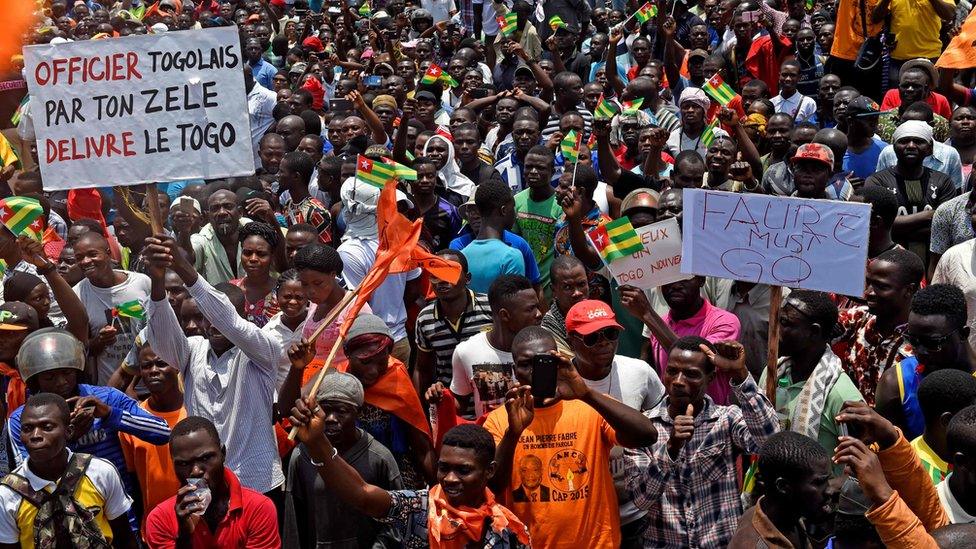
Anti-government protests have spread across the country
Thousands of people have protested across Togo for a second day running as the country grapples with an unprecedented political crisis, brought about by calls for the introduction of presidential term limits.
Faure Gnassingbé has been head of state since 2005 when he took over from his father Gnassingbé Eyadema, who seized power in a coup in 1967, seven years after independence.
The anti-government protests began in August and have spread to the whole country.
Demonstrations have largely been peaceful and their scale has been huge, with organisers claiming that as many as 800,000 people - out of a total population of 6.6 million - took to the streets on 19 August.
However, a nine-year-old boy was killed in the northern town of Mango on Wednesday, according to human rights groups, while more than 70 people were injured in the town of Bafilo, almost 400km (250 miles) north of the capital, Lomé.
The security forces are out in large numbers. They have closed off Lomé's major streets.
There has been violence elsewhere, with protesters burning the houses of people perceived to be close to the government.
Opposition leader Jean-Pierre Fabre has called for more demonstrations next Tuesday, Wednesday and Thursday.
''We will continue our struggle until the end,'' he told his supporters in Lomé.
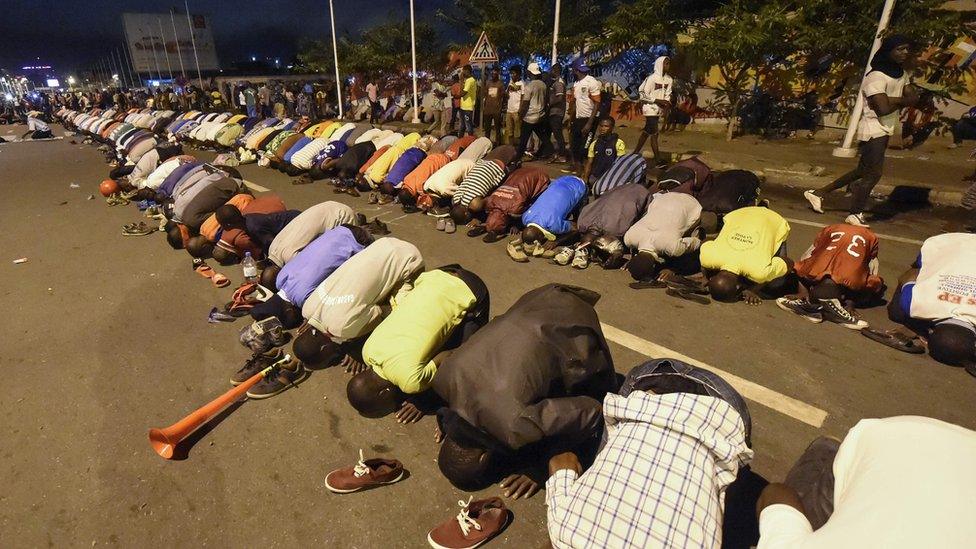
These oppositions supporters prayed during a previous all-night vigil
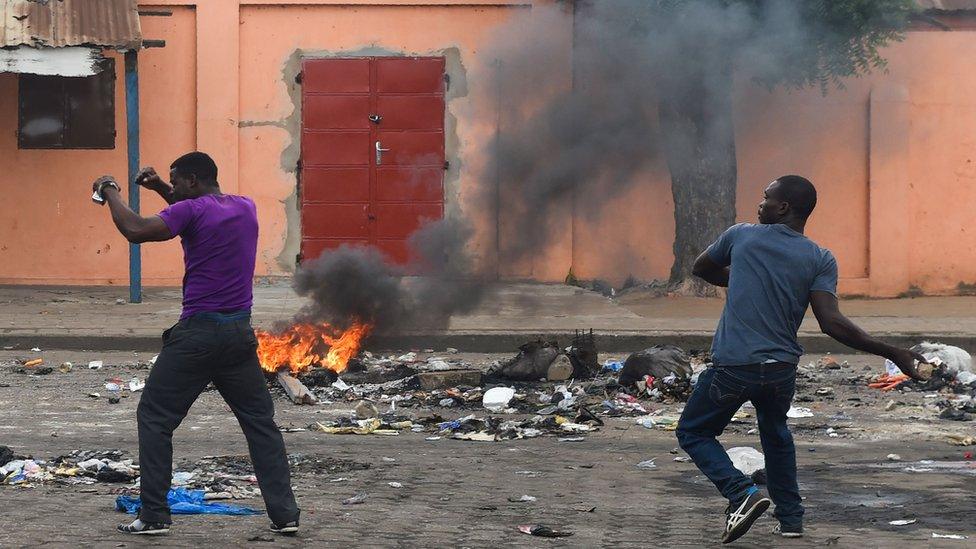
Protests have been largely peaceful but there have been some clashes with riot police
Why don't the government and opposition settle their differences in parliament?
The government has tried this.
On Tuesday, MPs voted in favour of a proposed change to the constitution to introduce a two-term limit ahead of the next presidential election in 2020.
The change will require a referendum before it comes into effect.
The matter is settled then...
Not at all.
The opposition boycotted the vote, claiming Tuesday's parliamentary session was a ruse by the government to make itself look reform-minded and allow Mr Gnassingbé to stay in power until 2030.
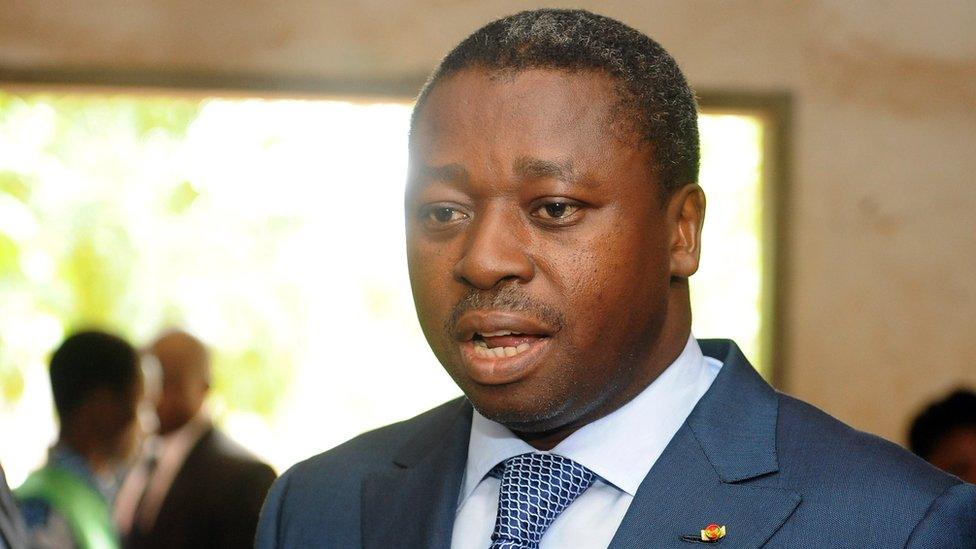
Faure Gnassingbé inherited power from his father but has since been re-elected twice
Some opposition politicians want the president to step down immediately, and none of them want him to be able to stand in 2020.
They say Mr Gnassingbé is already in his third term, since he took over from his father in 2005 and was re-elected in 2010 and 2015.
The opposition wants to revive a paragraph in the 1992 constitution that says "under no circumstances may anyone serve more than two terms".
On Sunday, the country's bishops threw their weight behind the opposition.
The Gnassingbé dynasty is 50 years old. Why has it taken until now for the Togolese people to protest?
This is not the first time.
In 2005, an estimated 500 people died in a government crackdown against opposition protests.
What's different this time?
For many years, the south of the country was seen as anti-government but the Gnassingbé family drew all the support it needed from the north, where they come from.
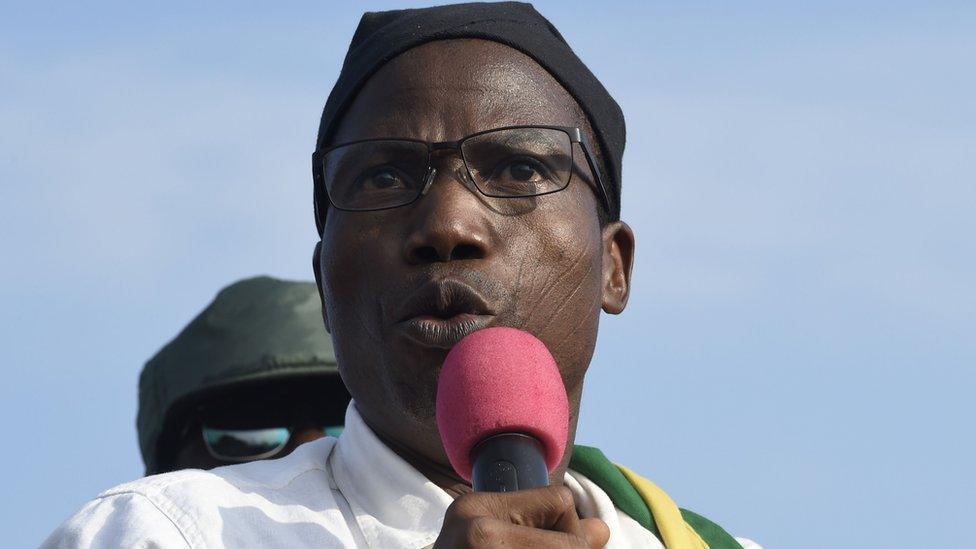
Tikpi Atchadam has breathed new life into the opposition
This time some of the biggest demonstrations have taken place in cities like Sokodé in the centre-north and Dapaong and Mango in the north.
A new opposition figurehead, Tikpi Atchadam, leader of the National Panafrican Party (PNP), hails from the north.
What has the government done?
It has cut off all mobile 3G data to try and prevent people from using social media to mobilise.
Pro-government supporters also held a large demonstration on Wednesday.
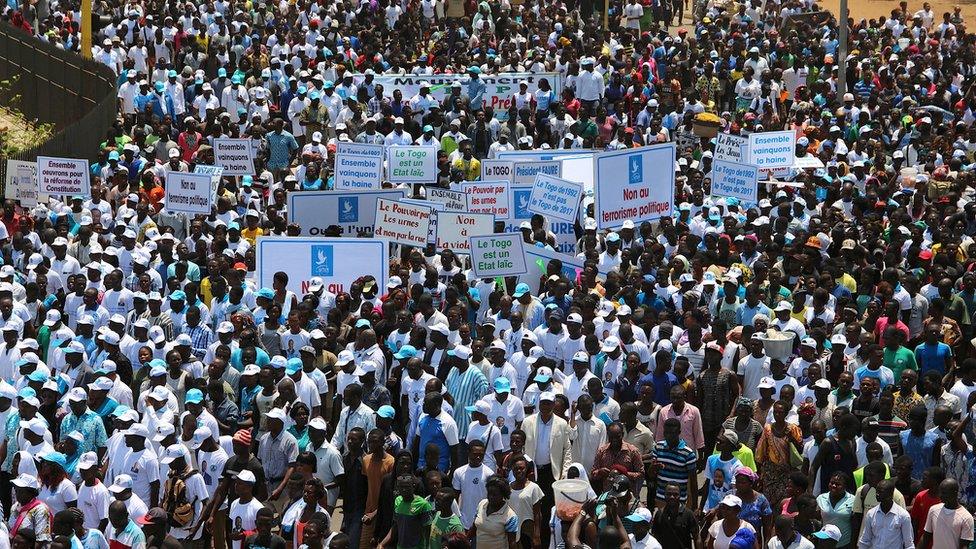
It accuses Mr Atchadam of links to Islamist radicals, but has not produced any evidence to support its allegations.
- Published25 April 2016
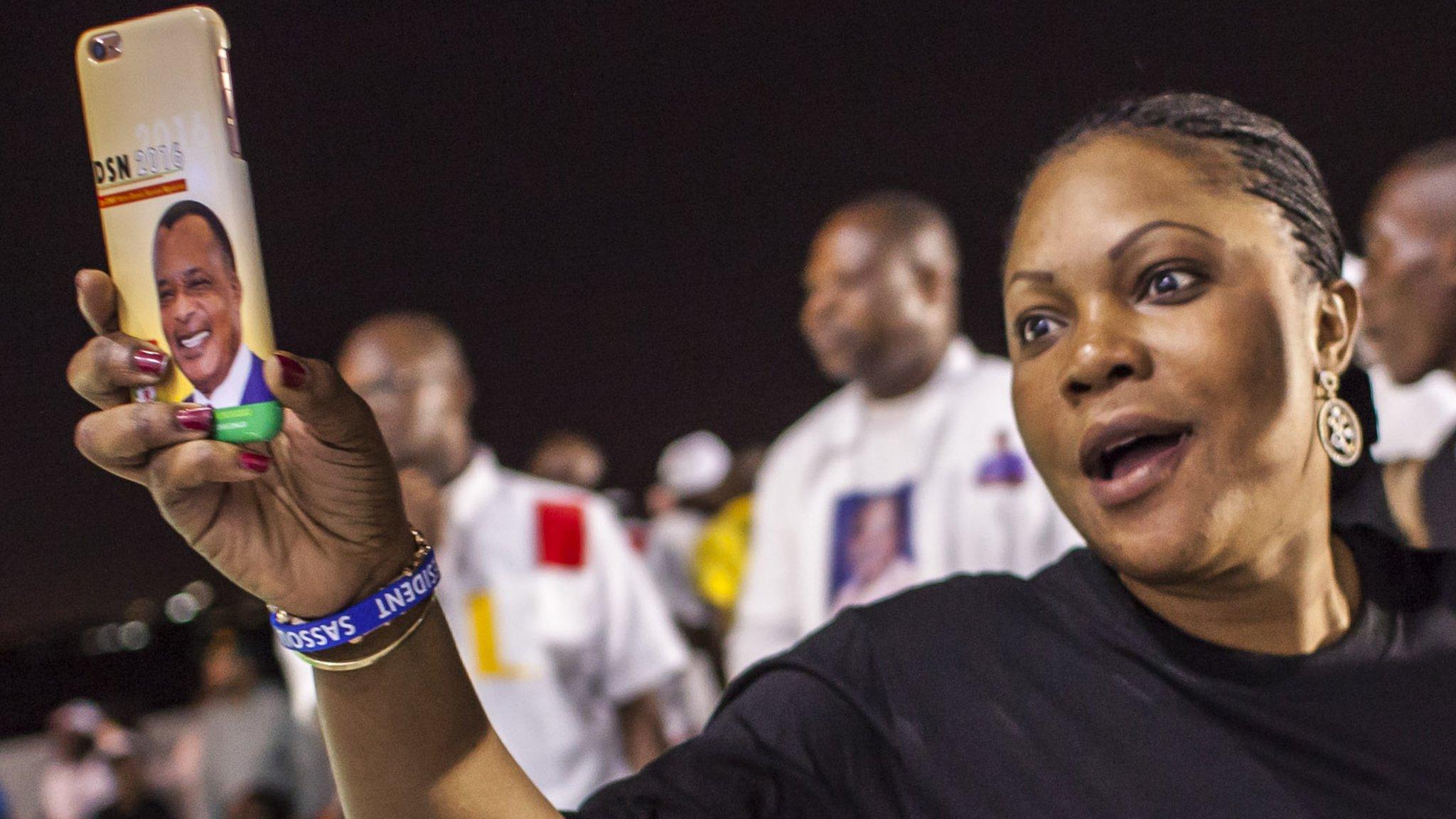
- Published21 May 2024
